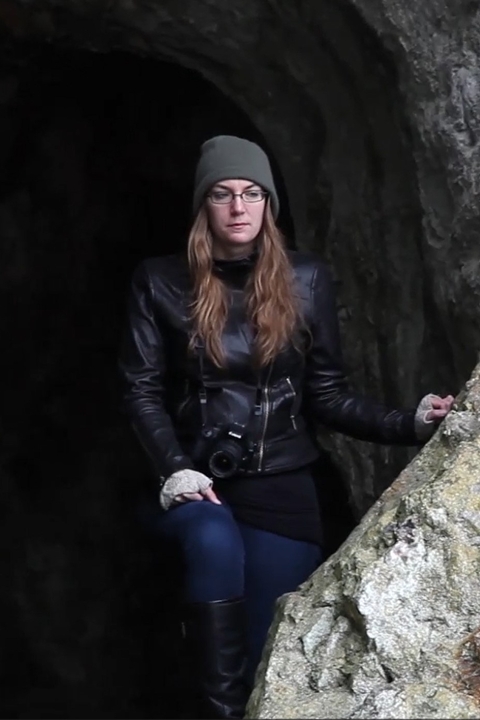Sarah Ranlett is a post-doctoral associate in the Peabody Museum Anthropology Division. She is working with the archaeological materials from the Yale University Prehistoric Expedition to Nubia (YUPEN), a legacy collection derived from the UNESCO campaign to preserve cultural heritage in advance of flooding resulting from construction of the Aswan High Dam in Egypt in the 1960s. This collection is one of the largest legacy collections in the museum’s Anthropology Division that has not yet been systematically studied or cataloged and represents one of the largest collections of Pleistocene archaeological material from Egypt currently in North America.
Sarah recently received her doctorate from the University of Toronto in the Anthropology Department, completing a dissertation on the use of unusual or ‘precious’ materials during the Upper Paleolithic in Southwest France, as well as their historical role in Paleolithic scholarship. She has done fieldwork in France, Eastern North America and Africa and has experience working with large archaeological collections at the Royal Ontario Museum, the Schreiber Wood Project at the University of Toronto Mississauga, and in her ongoing role as the field lab director for Paleolithic archaeological excavations in France. She has also worked at the UNESCO World Heritage Centre as an archaeological consultant for the Human Evolution: Adaptations, Dispersals and Social Developments (HEADS) Thematic Programme for World Heritage, whose aim was to raise the profile of Pleistocene era sites on the World Heritage List.
Her research focuses on highlighting the continued scholarly value of legacy collections through archival research, understanding the broader historical and disciplinary trajectories involved in their creation and curation and, ultimately, by mobilizing these collections to contribute to modern archaeological research. Her current work with the YUPEN collection lies at the intersection of her previous experience with collections management, archaeological epistemology and World Heritage.
